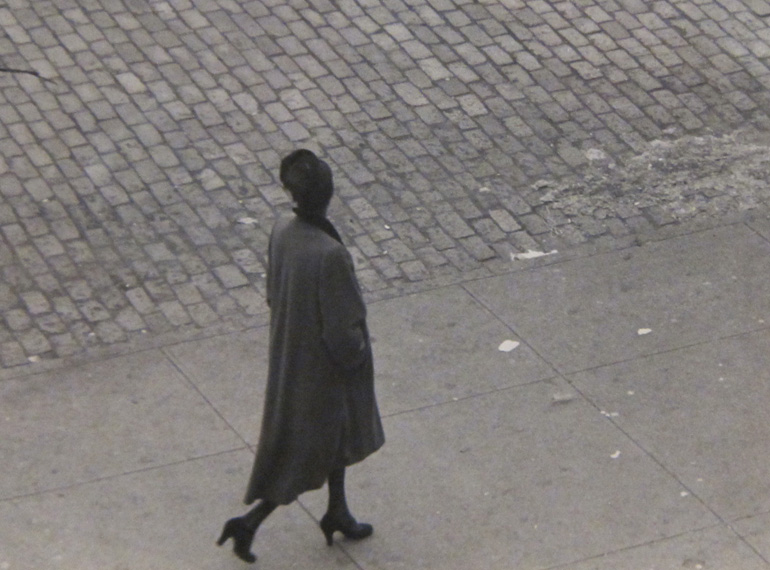Gotham Diary:
You don’t know what trouble IS!
5 March 2014
Pretty soon, Roz Chast will have been publishing funny drawings in The New Yorker for forty years. I remember liking her right away. Kathleen didn’t, at first, but by the time “Other Hamptons” appeared (“Tubhampton,” “Fanhampton,” and, one that we still have occasion to use whenever we gaze down from our balcony and spot a young person stretched out on a towel, “Roofhampton”), we were united in giggling admiration. Roz Chast is almost always very funny, and the fun is weirdly amplified by its appearing in The New Yorker, where, at first, her scribbled style seemed deeply transgressive. Now that the magazine has developed a few other rough edges, not to mention a flock of other scribbling artists (Danny Shanahan comes to mind), and now that she has been appearing in The New Yorker since before a lot of readers were old enough to enjoy it (or even born), she might not stand out in such sharp contrast. Then again, she might, for her drawings have always been acts of gleeful misbehavior.
Chast’s graphic memoir, “Can’t We Talk About Something Pleasant?”, appearing in the current issue of the magazine, is a protracted exercise in what used to be called “being fresh.” The subject is the decline and death of her parents. This is a topic for which Chast’s graphic style and campy sarcasm are wholly unsuited, and the result could not be more delightful. Noting that her parents were “a tight little unit,” she has her mother say, “‘Codependent’? Of course we’re codependent!” To which her father adds, “Thank GOD!!!” Later, Chast shares her impatience with the leisurely pace of her mother’s subsidence. Finding her mother, neat and cheerful, at lunch with her Jamaican nurse, Chast complains, “I knew her retreat from the abyss should have filled me with joy, or at least relief. However, what I felt when I saw her was closer to: ‘Where, in the five Stages of Death, is EAT TUNA SANDWICH?!?!?” There is no direct evidence in these pages of the five stages of grief — except, of course, for the last one.
That Chast’s artistry is deeply verbal is clear from these quotations, which require no description of the accompanying artwork to make sense. Indeed, the artwork seems to me to be an extension of the verbiage. When Chast draws herself in a state of trembling jealousy — her mother gets on better with the nurse than she does with her daughter — she gives us something close to a pictograph, illustrating not so much a woman being jealous as jealousy itself. Her drawings are dashed off, like Chinese running script, and her rare attempts at prettiness are always heavily ironic. Certainly, Chast commands the graphic skill to make her primitive-looking figures funny — goofy, silly, pompous, idiotic, and every shade of brain- from -dead to -storm — but it is her language that bites. She uses text to display a persona of utterly disrespectful exasperation, and she offers her drawing as the justifying explanation. If the world looked like this to you, you’d be screaming, too.
And that’s the key: the most ridiculous figure in Chast’s work is her personal stand-in. She presents herself as either unremittingly incompetent or dangerously unstable, and here, too, her slapdash manner of drawing slyly tempts you to agree. In “Can’t We Talk About Something Pleasant?”, Chast faces a series of hurdles. She clears each of them, but this is not shown; what’s shown, lovingly, are the hurdles. She attempts to tease out her parents’ thoughts about funerals and burials; she tries to convince them to move into an assisted-living facility (called the PLACE); she keeps her mother stocked with Depends; and she gives herself oy for effort. Her parents die — but not in the frame. All we see is the kvetching. What it adds up to is a memorial-by-omission that is both poignant and heartwarming. Like a grand drag queen, Roz Chast draws attention to the unspeakable by leaving it unspoken, and gesturing around it. Where drag queens meditate on the mystery of gender, Chast contemplates the conundrum of growing up normal and Jewish in Brooklyn. Equally muddlesome! The comparison has another point of interest: a drag queen is a kind of stand-up comic. Chast is not a performer in this sense at all. She is a writer and an illustrator. The humor is in the ink.
“Between their one-bad-thing-after-another lives,” she writes of her parents, “and the Depression, World War II, and the Holocaust, in which they both lost family — it was amazing that they weren’t crazier than they were.” Even more amazing is Roz Chast’s wonderful long run at The New Yorker. May it continue for decades to come!

